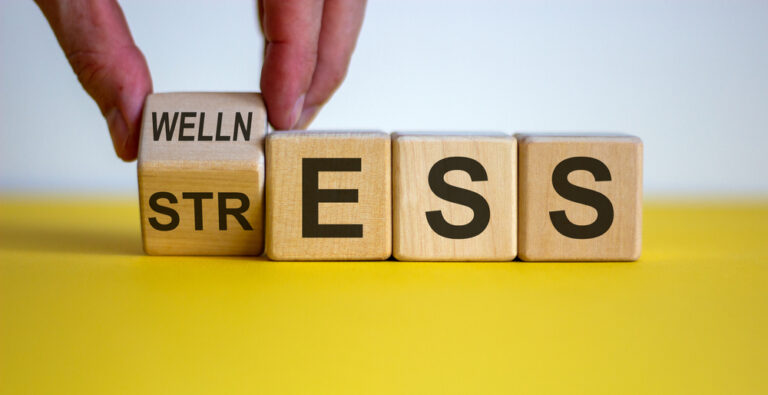by Tim Smith
Hurricanes are stressful enough when we’re hunkered down in the safety of our own homes.
But there’s an extra layer of pressure for those heroes on the front lines in the aftermath of a major storm—and it’s vital they manage the impact on their physical and mental well-being.
Warrant Officer Class Two Dean Rubaine, a national disaster planner at the Ministry of National Security, has first-hand experience of response worker stress. Rubaine was on duty with the Signals Section of the then-Bermuda Regiment when Hurricane Fabian ravaged the island in 2003. He recalls the devastation as he headed into the East End to check on communications with a Regiment colleague and telecommunications company rep. Four people had lost their lives on the Causeway, numerous roofs had been ripped off homes and key buildings, such as St George’s Preparatory School, were badly damaged.
“When we went across the Causeway, it was like wow,” Rubaine says. “The residents all came out and you could see the shock on their faces. I had not seen it before, the amount of people really in shock.”
People were in desperate need of tarps to cover roofs and psychological support. “It was not just the damage, but the overall surrealism of it all,” says Rubaine. “When we went into the St. David’s community to assess further needs to report back on the radio, some residents approached us and broke down crying. To experience the people who were in shock, that was the real one. Some were aggressive. That moment of, wow! This is very bad, they need help and fast.”
Response workers are given Critical Incident Stress Management by the Red Cross, while Major Duncan Simons of the Royal Bermuda Regiment says stress is further mitigated by team cohesion and training.
“If you train for a situation you are better prepared to deal with it,” Simons says.
Wellness expert Emma Pearson notes that hurricanes are particularly stressful for disaster workers. “Prior to any storm hitting, the disaster response workers’ jobs have already begun preparing for the upcoming event,” she says. “They not only have to worry about getting the job done prior to the event, but also have to cope with the anticipation of the job to come.”
While regular citizens typically ride out the storm with their families, the Regiment, police, meteorologists and medical personnel have the added stress of being apart from family during the event. Then, once the storm has passed, average citizens are able to focus on cleaning up their homes, whereas disaster relief workers have to first ensure safe surroundings and restore order quickly.
“The disruption to home life, with mess and lack of power, disrupts everyone’s routine, but for those who are working hard and overtime, these disruptions are likely felt tenfold,” says Pearson.
Pearson, who owns The Pearson Clinic in Hamilton, which helps people improve their physical and mental wellbeing through healthier lifestyles, offers the following tips to front-line workers when it comes to coping with stressful situations:
Maintain good physical and mental health throughout the year.
“It might be helpful for disaster workers to reflect on their health around summer months in recent years past. Have you suffered from any recurring illnesses? Are there any recurring events in your life in these months that contribute to increases stress or grief?”
You can learn techniques and lifestyle practices to help manage any of these factors.
Eat well, maintain good rest and sleep habits, and make time to move the body.
Pearson says: “I’d encourage workers to consider starting a practice of mindfulness or meditation now, prior to periods of high stress so that you can better manage when times are a bit more trying. If you feel you need to seek out help from doctors and therapists to help you get a head start on better managing your health, then there is no shame in that.”
Try to calm the nervous system, using mindfulness to centre yourself.
“Stress can bring about frenzied feelings and thoughts, so I advise people to take a moment to check in with their body. Be still and send your focus to your feet and notice the ground beneath you. Then, check in with your posture. Take a few moments to focus on your breath. If you are stressed, you will likely sense it being shallow and rapid,” says Pearson. “If this is the case, try the following breathing technique: inhale fully for the count of four, holding the breath for the count of four and then exhaling slowly for the count of four. Repeat this until you feel yourself begin to calm.”
This mindful practice can be done anywhere. As Pearson explains: “Internal work like this allows you to practise this subtly in public without anyone being any the wiser. It can be just moments long, a few minutes or more—completely up to you! I’d encourage response workers to incorporate this leading up to, during and after a stressful event.”
Practising daily when calm or during low levels of stress makes it easier to implement when stress is at its highest. This tool can also be used prior to bed to help calm the mind and move into a more peaceful sleep.
Once the stressful situation is finished, you should check in with yourself physically and emotionally.
“You are going to want to reach out for help if you feel as though you are overwhelmed in either of these departments,” says Pearson. Daily yoga and meditation may help, as will seeking out practices and therapies that work on creating both physical and emotional balance, like acupuncture. “Making time for yourself to return to a healthy daily routine is essential. You want to be focusing on eating well, sleeping well and exercising.”

